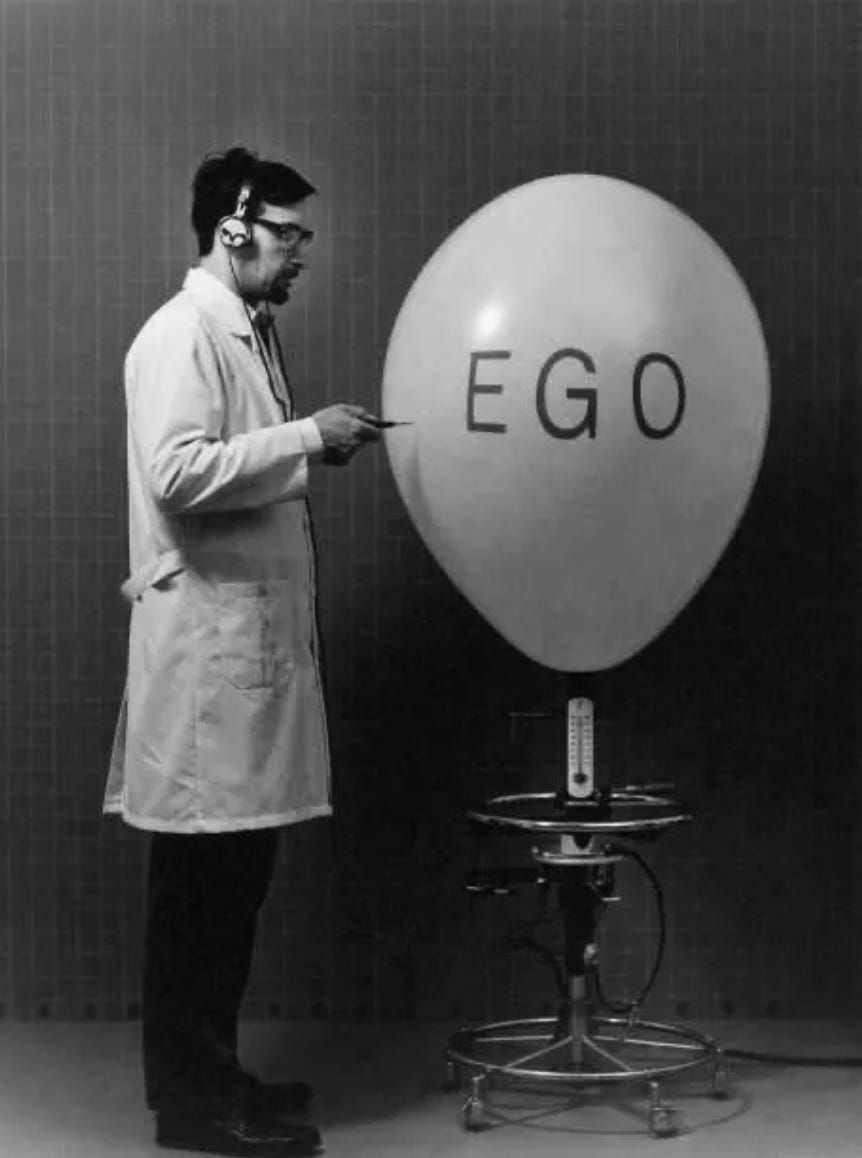The amount of knowledge you have stored in your brain no longer sets you apart.
It’s what you do with that information that matters. If machines can pass tests and write essays for us, creativity holds more weight than ever. Now credentials alone are not that impressive, it’s about proof of work.
I have a feeling there might be a bunch of other people out there like me, those who collect information and articles and quotes and ideas. Maybe they even categorize these ideas in a Notion or Evernote file, but then never do anything with those ideas.
Like taking videos at concerts and never going back to watch them again, those ideas and videos sit there taking up space in the cloud and collecting proverbial dust. A key ingredient to operating in Flounder Mode is to make things.
Don’t worry about whether you’re qualified or not, it doesn’t matter. Once you start putting yourself out there, you’ll come to a realization; People don’t teach because their experts, we perceive them as experts because they teach.
If I could have a conversation with my younger self, I would tell that version of me to start participating in the world of makers earlier.
The world of makers — that’s the theme of this weeks Sunday Serendipity…
For the longest time, I consumed information without making anything out of it.
There’s nothing wrong with that, but after a while it gets repetitive. I admired others who were making things on the internet and for some reason I always thought I wasn’t qualified to share my ideas. Plus I’m great at bikeshedding and keeping busy with trivial tasks instead of focusing on the big important things.1
Then I would see someone else share an idea I learned years ago, they just repackaged it and put a different spin on it and they would get so much praise.
After it happened enough times, I realized “oh shit, I can do that too, why am I not sharing my perspective on the information I’m learning?”
Austin Kleon was a big help. After reading Steal Like and Artist and Show Your Work, it opened my eyes to all the benefits of making thing in public.
The internet is a serendipity machine, and since I’m obsessed with serendipity, it would be foolish of me not to make things. Still, it took years of thinking and hoping and wishing before I took action.
It’s easy to become an expert at collecting information and not doing anything with it:
Thanks for the reminder Nat Eliason. I know the feeling. I experienced a fair share of resistance when making the switch from consumer to producer, but at some point the pain of not sharing outgrew the fear.
The tipping point came in February 2023, when I pressed publish on my first essay:
I’m no longer worried about what anyone else thinks. I’m doing this for my own sanity, with the hopes of helping others along the way.
Then came many months of shouting into the void. Success doesn’t happen overnight, but something else does happen when you enter the world of makers. Over time, you drop your ego and start to focus more on the craft itself:
Photographers see things with greater appreciation.
Musicians listen with greater admiration.
Writers read with greater attention.
Making things causes you to move through the world differently.
There doesn’t need to be an end goal, just create for the sake of creating because it makes you appreciate art even more. This is the best way to start, by doing it for yourself without having any sort of expectations.
My favorite excuse was always… “I don’t have time”
The reality is, if you want to make stuff, you might have to give something else up:
It may sound frivolous, but I really mean it. If you’re pursuing a big, ambitious project—trying to finish one, trying to get one off the ground, trying to get one into a new phase—I think it can be useful and important to look at the other commitments in your life and very intentionally decide that you are simply not going to do one of them (or more than one of them) and carry on from there.
We only have so much time and energy in each day, and creative work can take more time and energy than outside observers would ever believe. Sometimes you need to hoard that time and energy for your most important thing and let yourself off the hook about other still-important things that are not the thing, at least for a while. - Mason Currey
What a great line, at least for a while, but not forever. Getting the ball rolling is often the most difficult part.
I doubt this is the first time you’ve heard this advice. I even hesitated writing this since so much has been said around the idea of “getting started” and “making things”.
I wrote it anyways, because often we can hear something hundreds of times without it resonating, but then, the hundred and first time, it hits like a ton of bricks.
Until next time my friends,
<3 B
P.S. - If you enjoyed this, consider hitting the ❤️ button, it helps get the message out.
P.P.S - I’m hosting a cycling & writing retreat in Spain next Spring. If that sounds interesting, fill out this form and I’ll be in touch with more details.
“Bikeshedding can negatively impact us because it causes us to manage our time inefficiently by disproportionately allocating time among tasks. We end up spending too long on trivial tasks and leave ourselves no time to complete the more complex tasks, which tend to be more important in the grand scheme of things. This hurts our productivity, potential, and mental well-being. It causes us to be short-sighted with our time allocation, going with the most straightforward task first because we believe it will take less time to complete.” - https://thedecisionlab.com/biases/bikeshedding




